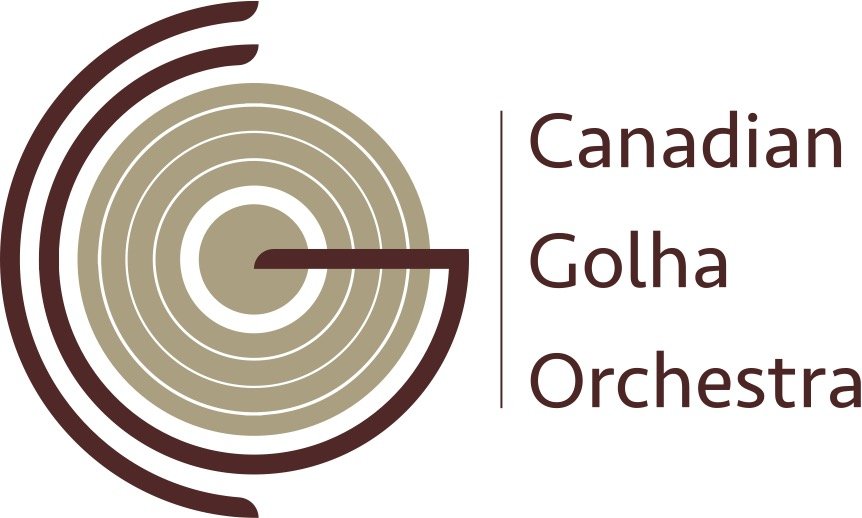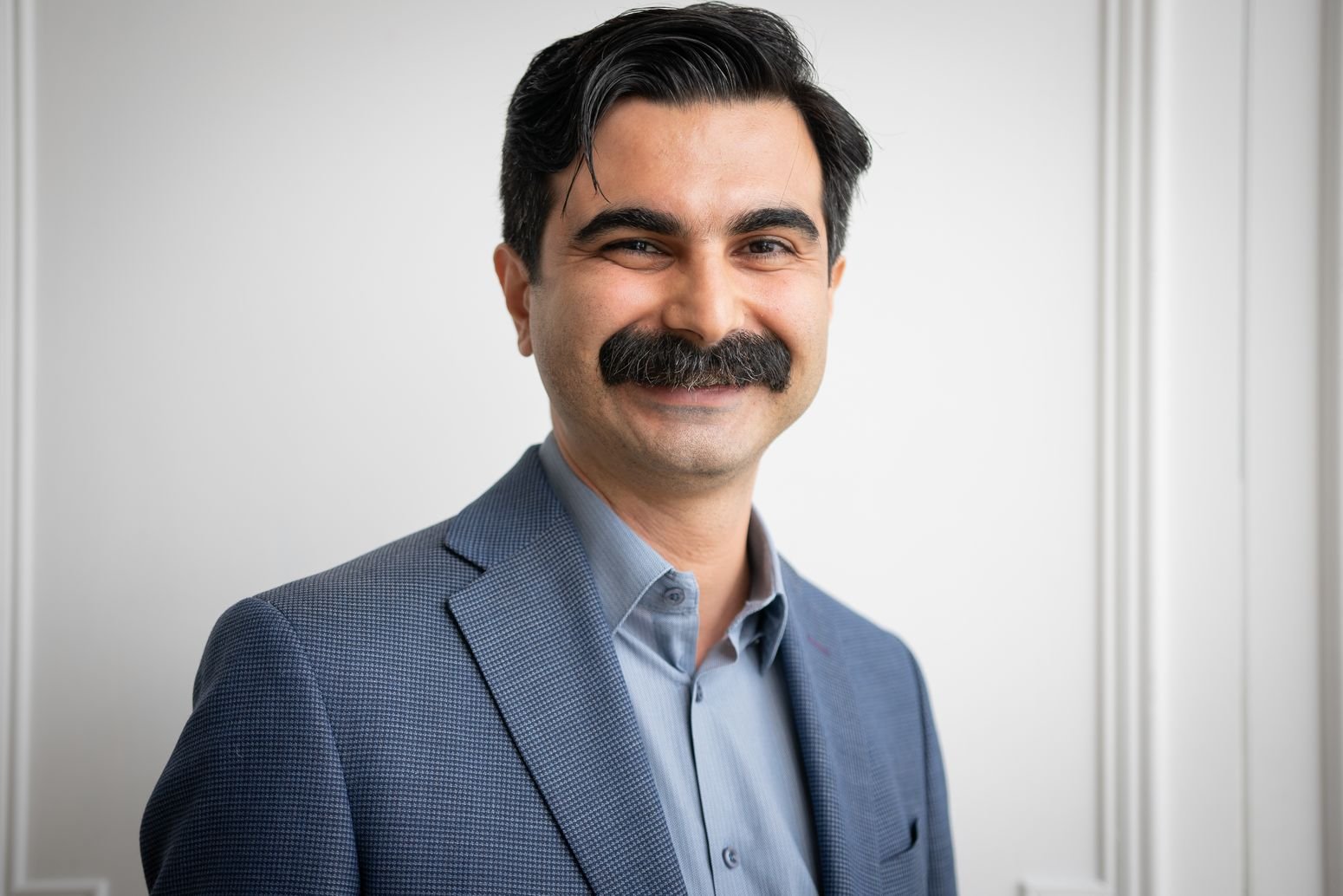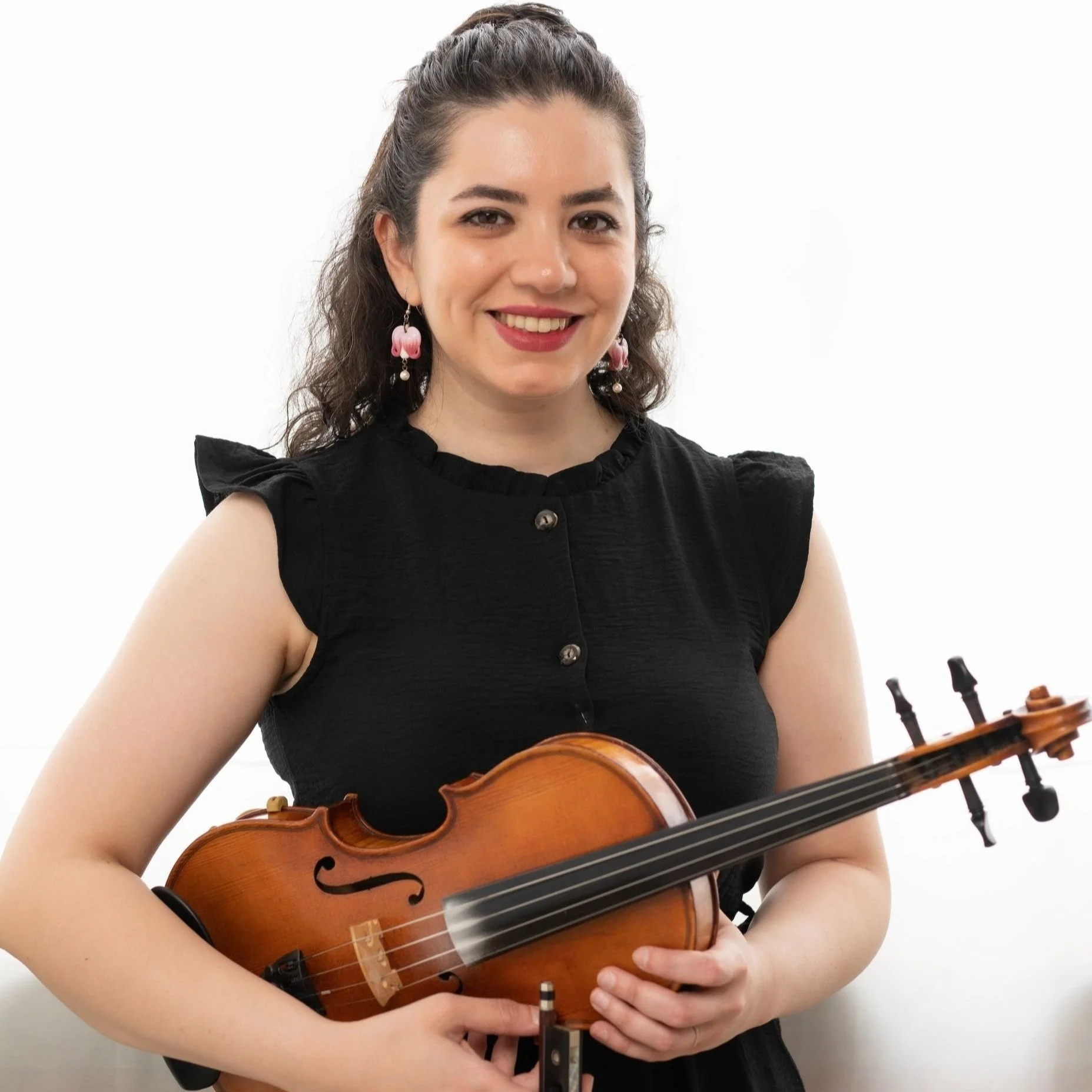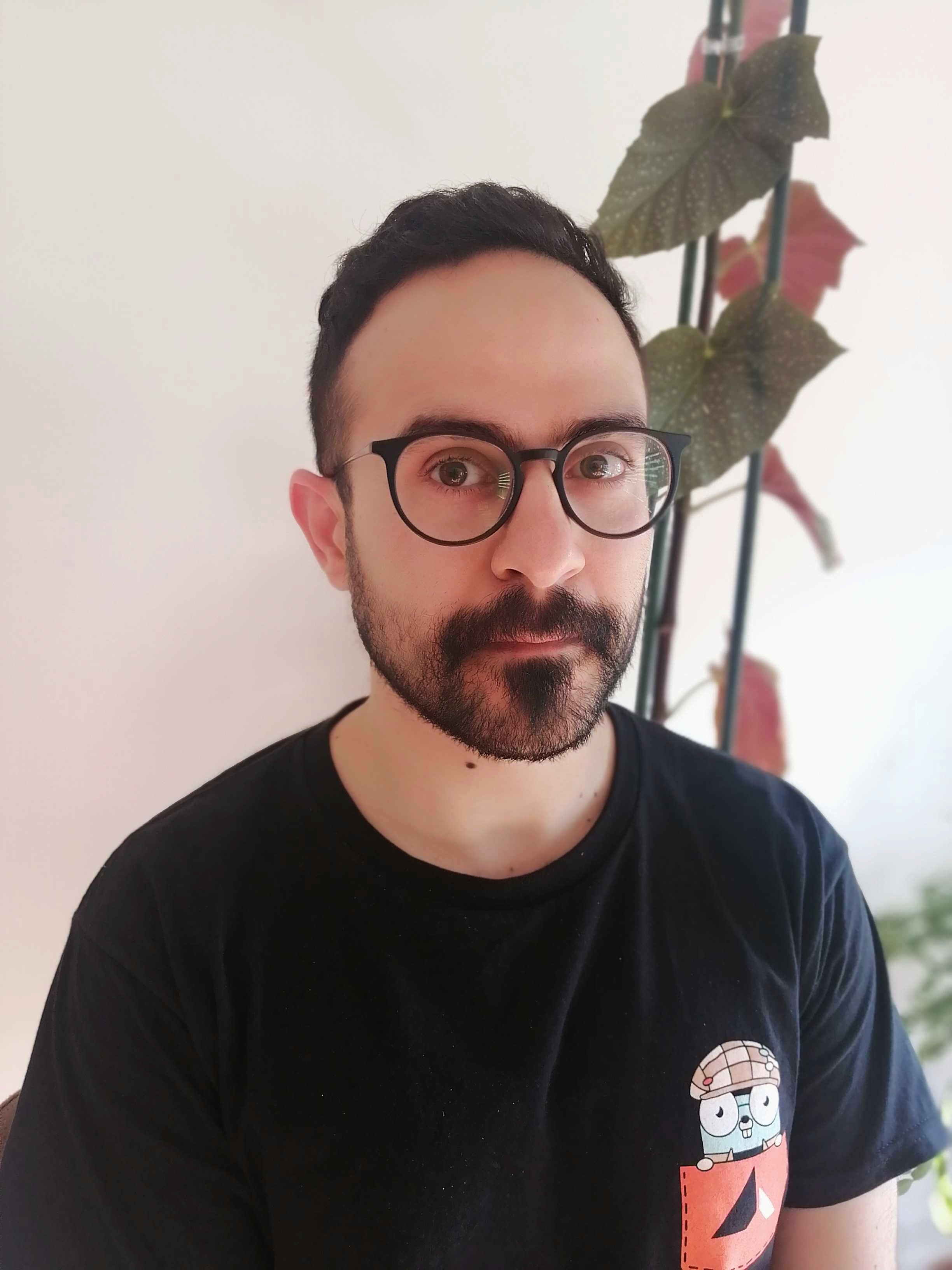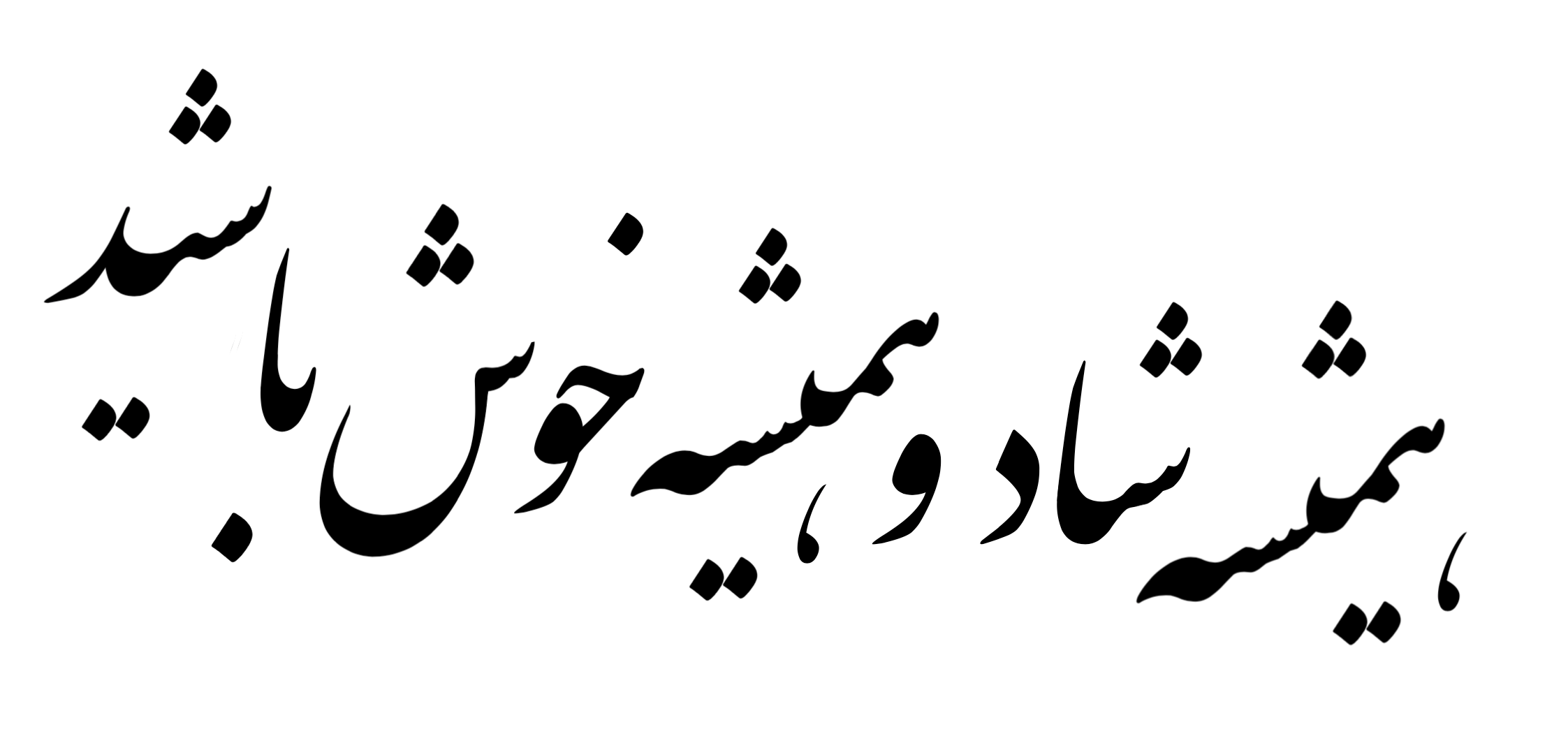
Program:
-
Abolhassan Saba (1902-1957)
Arr. Hossein Dehlavi (1927-2019)
Adapted by Kousha NakhaeiComposer, arranger, and conductor Hossein Dehlavi was part of the generation of musicians who followed Rouhollah Khaleghi and the composers of the Golha radio programs and continued creating Iranian music for orchestras that included Western and Iranian instruments side by side.
A student of the renowned master Abolhasan Saba, Dehlavi orchestrated many of Saba’s works, including Naghme-ye Tork, which is based on Saba’s melodic material in Bayat-e Tork, one of the principal modes of Iranian music. Dehlavi’s original arrangement has been adapted for the Canadian Golha Orchestra by Kousha Nakhaei. -
Morteza Mahjoubi (1900-1965), Abolhassan Saba (1902 - 1957), Javad Maroufi (1912-1993)
Lyrics: Rahi Mo’ayyeri (1909-1978), Sa’di (13th c.)
Arr. Golnoosh Khaleghi, Kousha Nakhaei
Kārevān: A Suite in DashtiOne of the most beloved productions of the Golha radio series, Kārevān first aired in the 1960s. This program was created as a suite of compositions in the mode of Dashti, featuring music by Morteza Mahjoubi and Abolhassan Saba. Javad Maroufi, then conductor of the Golha Orchestra, arranged these pieces for orchestra, along with lyrics by Rahi Mo’ayyeri and Sa’di, and shaping them into the form you will hear tonight.
The theme of the caravan (Kārevān) is a recurring image in Persian music and literature: the beloved departs with the caravan, leaving the lover behind—an emotional landscape filled with love, loss, and longing for reunion:
رفتی و رفتن تو آتش نهاد در دل
از کاروان چه ماند جز آتشی به منزل
"You have gone and left a blaze in my heart,
What remains of a caravan but the glow of a dying fire at the encampment?"I. Introduction
II. Deylamān
This deeply expressive melody comes from the Deylaman region in northern Iran and was collected by Abolhassan Saba while working in music education there. Saba later added it to the classical repertoire (radif), and it became especially popular after its performance in Kārevān—both as an instrumental and a vocal version.
III. Chaharmezrab
A fast-paced, rhythmic instrumental form, Chaharmezrab is a signature of Iranian classical music. This piece by Abolhassan Saba is one of the best-known examples. The main theme begins with twelve striking notes, evoking the sound of camel bells as the caravan makes its journey.
IV. Sāz-o Āvāz
Literally meaning “instrument and voice,” this form features spontaneous musical dialogue between the singer and instrumentalist. Drawing on the Deylamān melody, the vocalist weaves in lines of classical poetry in the moment. Tonight’s verse comes from Sa’di:
چنان در قید مهرت پایبندم
که گویی آهویی اندر کمندم
"So bound am I in your love,
As if I were a gazelle ensnared in a trap."V. Tasnif (Song)
The suite concludes with a tasnif composed song by Morteza Mahjoubi—one of the great pianists and composers in the traditional Iranian style. This piece is known for its emotional depth, beautifully capturing the themes of love and separation within the modal world of Dashti. The lyrics by Rahi Mo’ayyeri express this emotional journey simply and powerfully:
با ما بودی - بی ما رفتی
تنها ماندم - تنها رفتی
"You were with me — but left without me.
I remained alone — and you left alone." -
Hossein Dehlavi
Arr. K. Nakhaei
Another composition by Dehlavi, Sabokbāl literally means light-winged, and refers to the dance-like nature of this composition. The main theme of this piece is taken from a shepherd dance from the reigon on Ghāsem-Ābad in northern Iran.
INTERMISSION
-
Saman Shahi
Lyrics: Forough Farrokhzad, Parvin Dolatabadi, H. A. SayehThis new composition by JUNO-nominated composer Saman Shahi, is a setting of poetry by F. Farrokhzad, H. Sayeh, and P. Dolatabadi, weaving themes of displacement, belonging, and home. Shahi explanis: “While this piece stems directly from Iranian traditional music, I have aimed to introduce new harmonic, melodic, and orchestral elements common in in Western Classical Music.”
عاقبت بند سفر پایم بست
میروم خنده به لب خونین دل
“In the end, the bonds of journey tied my feet—
I go, smiling on my lips, but my heart bleeding.”
آسمان تنها، بشر تنها، زمین تنها، روشنان آسمان تنها
ای امید عبث بی حاصل
“The sky is alone, humankind is alone, the earth is alone—
Even the stars of the sky are alone.
O futile, fruitless hope...”
پرنده در قفس خویش خواب می بیند
پرنده در قفس خویش به رنگ و روغن تصویر باغ می نگرد
“The bird dreams within its own cage;
The bird dreams in oil and pigment and gazes upon the visions of an oasis.”
NOTE: Visions of Oasis was commissioned by the Canadian Golha Orchestra through a generous grant from the Toronto Arts Council Creation Grant. -
Siamak Aghaei, Colin Jacobsen
A collaborative composition between santour player Siamak Aghaei and violinist Colin Jacobsen, Ascending Bird tells the story of Torgheh (طرقه), a bird from Khorasan’s folklore. Torgheh dreams of reaching the sun. Guided by the ancient wisdom of the sea, she learns that in order to soar safely, she must repeat a sacred zekr—a phrase of divine remembrance—to protect herself from the sun’s burning rays. With each repetition, she rises higher and higher, drawing closer to her goal. But at the final moment, she forgets the last invocation. In her burning desire to unite with the divine, she loses balance and is consumed by the flames. -
Aref Ghazvini (1882 – 1934)
Arr. R. Khaleghi
Adapted by K. Nakhaei
Aref Ghazvini is considered one of the most influential tasnif (art song) composers in Iranian classical music. His work often echoed the sociopolitical landscape of his time. Yet, amid his revolutionary songs, he also composed personal love pieces. Na Ghodrat is one such song, said to have been written for Ghodrat-ol Saltaneh, a daughter of Naser al-Din Shah.ای دلارا، سرو بالا
کار عشقم چه بالا گرفته
جای عقل، عشقت یکجا گرفته"O graceful one, tall as a cypress—
Love has taken flight beyond control;
Where once reason ruled, your love now reigns alone." -
Abolhassan Saba
Arr. Nima Izadabadi
Raqs-e Chupi is a piece of dance music that originates from the Ghasemabad region of Northern Iran. It was collected and adapted into the classical Iranian repertoire by the renowned master Abolhassan Saba as part of his radif. Composer Nima Izadabadi has arranged this piece for the CGO. -
Rouhollah Khaleghi (1906–1965)
Lyrics: Rahi Mo’ayyeri
Arr. G. Khaleghi / K. Nakhaei
Bahar-e Aghegh is a poetic love song composed by Rouhollah Khaleghi, with evocative lyrics by Rahi Mo’ayyeri. A celebration of love blossoming in spring, the piece captures the delicate beauty of the season and the beloved.
شب، با چهره ی او، مه جلوه گر نیست
چون روی لطیفش گلبرگ تر نیست
"When her face lights the night, the moon hides in awe—
No rose petal is softer than her gentle face" -
Rouhollah Khaleghi
Arr. K. NakhaeiRouhollah Khaleghi composed two Persian Suites (Rangārang), one in the mode Esfahan and another in Mahour. In these pieces, he created relatively long orchestral suites, including various metric and non-metric (Avazi) sections, that reflect some of the main melodies (gushe-ha) in each mode. This excerpt is taken from Rangarang in the mode Esfahan, and starts in the melody known as Bayat-e Raje’.
*World Premiere

DIRECTORS’ NOTE:
On behalf of everyone at the Canadian Golha Orchestra (CGO) and the Golha Initiative for Music and Culture (GIMC), we welcome you to Kārevān, the final concert of our 2024–2025 season.
Tonight we’re excited to be working with the very talented singer Mahbobeh Golzari who has joined us from California. We are also thrilled to present you with a carefully curated repertoire that combines some of the old masterpieces of Iranian music with new compositions to tell a story that we all share: that of immigration and travel; that of leaving and arriving.
Tonight’s program has two parts, each of which features a central piece, a shāh beit if you will.
Part One has our title piece, Kārevān at its heart, a composition with several movements. Morteza Mahjoubi composed the song, Rahi Moayeri wrote the lyrics, Abolhassan Saba created the fast chaharmezrab, and Javad Maroufi arranged the entire suite for orchestra. Kārevān, as it was originally composed, arranged, and performed celebrated a departed friend, a musician who had just ascended to the turquoise dome, so it remembers and cherishes the memories built together, and relations that are forever transformed.
Part Two’s crown jewel is the world premiere of Visions of Oasis or Tasvir-e Bāgh by the Juno-nominated composer, Saman Shahi. This piece was commissioned by CGO and generously supported by Toronto Arts Council. Tasvir-e Bāgh’s expressive musical language is set to the poems of Forough Farrokhzad, Houshang Ebtehaj, and Parvin Dowlataabaadi. It tells the stories of displacement and belonging from the perspective of people who, somewhere along the way, joined a caravan and left their homes behind to search the new horizons.
Side by side, Kārevān and Visions of Oasis present the story of many émigrés: suspended between the thrill of going away and the desire of returning; divided between the pleasures and pains of arriving, and joys and agonies of departing.
We hope you enjoy tonight’s concert!
Hadi Milanloo – Executive Director
Kousha Nakhaei – Artistic Director
Nil Basdurak – Director of Strategic Planning
Biographies:
-
Mahbobeh Golzari is an acclaimed vocalist of Persian classical music. She started singing at the age of eleven, and studied the traditional classical repertoire (radif) under the supervision of master Parisa. Her main teachers include Dr. Hossein Omoumi, Mohammadreza Lotfi, Hossein Alizadeh, Amir Eslami, Mohsen Keramati, and eventually the legendary master Mohammadreza Shajarian. She came to prominence after a collaboration with Hossein Alizadeh in 2014 when her singing of a Kurdish lullaby was featured in the movie “Turtles Can Fly”. Golzari has collaborated as a vocalist on several acclaimed albums, including Ze Âvâz-e Abrisham, Bang-e Nay, Chehre-haye Eshq, and Mina. In addition to her album collaborations, she has released several singles, including Rastakhiz-e Shahriaran-e Iran, Chin-e Zolf, and Sari Galin. She has performed internationally, captivating audiences in Vancouver, Melbourne, Berlin, and California where she now resides.
-
Kousha Nakhaei is a conductor, violinist, kamanche player, and educator. He co-directs Sarv Music Academy, a music education centre he co-founded in 2013, curating a multifaceted music education program. He serves as the artistic director for Canadian Golha Orchestra, Sarv Strings and Sarv Choir and regularly arranges music for these groups. As an instrumentalist, he has performed with artists such as Sepideh Raissadat, Ali Rostamian, Naser Masoudi, and Loreena McKennitt. He has toured in Canada and the US with the Sarv Ensemble, Canadian Arabic Orchestra, and Canadian Golha Orchestra. He recently completed an intensive conducting course with Kenneth Keisler.
-
Hadi Milanloo is a PhD candidate in Ethnomusicology at University of Toronto. His doctoral work explores the music and lives of female instrumentalists who perform Iranian classical music in Tehran to examine the intersections of music, gender, and resistance/resilience in Iran. He works towards an ethnomusicological approach that accounts for both aesthetic contributions and social activism of Iranian female musicians. Before joining the University of Toronto, Hadi completed his MA studies at Memorial University, where his Major Research Project focused on the musical life stories of eight Iranian émigré women in St. John’s, Newfoundland. Additionally, he has earned his first MA in Art Studies at the University of Tehran. Hadi is also a musician (Bachelor of Music, University of Tehran) and has studied Setar and the radif of Iranian Classical Music with Ostad Dariush Talai and Hamid Sokuti, among others.
-
Nil Basdurak is a Ph.D. candidate in Ethnomusicology at the Faculty of Music at the University of Toronto. Her interdisciplinary doctoral research interests revolve around sound studies, urban public space, the acoustemology of neoliberal Islam, and violence against women, children, ethnic minorities, and refugees in contemporary Turkey. In 2019, her paper about refugee children’s street work as buskers received an honourable mention for the Charles Seeger Prize, which recognizes the most distinguished student paper presented at the SEM’s annual meeting. In 2021, her paper about the acoustemology of violence against women was awarded the Wong Tolbert Student Paper Prize and an honourable mention for the SEM’s Religion, Music, and Sound Section Student Paper Prize. Nil is currently a research assistant for the Kensington Market Soundscape Study—a community-engaged research and knowledge mobilization project focusing on sound, music, and noise in Toronto’s Kensington Market neighbourhood. She is also a graduate fellow at the School of Cities at the University of Toronto. Besides her academic work and interests, Nil serves as a board member of the Golha Initiative for Music and Culture.
Canadian Golha Orchestra
Conductor: Kousha Nakhaei
Violin 1:
Bijan Sepanji (Concertmaster)
Behnoosh Behnamnia
Saba Yousefi
Aysel Taghi-zada
Suhashini Arulanandam
Joyce Lee
Violin 2:
Rezan Onen-Lapointe
Yeganeh Hosseininia
Ellen Moore
Elena Spanu
Viola:
Rae Gallimore
Matt Antal
Yoon Woo Kim
Cello:
Darya Zonoozi
Emma Scmiedecke
Mary-Katherine Finch
Isaiah Naveed Farahbakhsh
Double Bass:
Andrew Downing
Flute:
Rana Mireskandari
Oboe:
Colin Maier
Clarinet:
Naomi Buttler-McCarroll
Peter Stoll
Tar:
Shahin Fayaz
Masih Tahvildari
Tonbak:
Ziya Tabassian
CGO Advisors
Board of Directors

